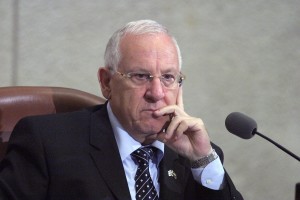Haaretz editor Aluf Benn has an interesting column in which he examines how Egypt’s revolution will impact Israel’s cost-benefit calculus of launching an air strike on Iranian nuclear facilities.
Benn argues that Mubarak was an important, if not crucial, ally for Benjamin Netanyahu in holding together a Sunni axis that stood against a number of Israel’s enemies.
Netanyahu shared with Mubarak his concerns about the growing strength of Iran. Egypt played a key role in the Sunni, the “moderate,” axis, which lined up alongside Israel and the United States against Mahmoud Ahmadinejad and his allies in Lebanon, Syria and the Gaza Strip.
While some hawks have warned that the Egyptian revolution could be co-opted by the Muslim Brotherhood, Benn sees the revolution as a largely secular movement. But that doesn’t mean that the new Egyptian leadership will be helpful in backing Israeli attempts to pressure Iran or supportive of a military strike.
On the contrary: they will listen to Arab public opinion, which opposes a preemptive war against Iran. Israel will find it difficult to take action far to the east when it cannot rely on the tacit agreement to its actions on its western border. Without Mubarak there is no Israeli attack on Iran. His replacement will be concerned about the rage of the masses, if they see him as a collaborator in such an operation.
With the supposed Israeli “consensus” over the existential threat posed by Iran quickly melting away—see recent comments by former Mossad chiefs Efraim Halevy and Meir Dagan—Mubarak might be offering Ehud Barak and Benjamin Netanyahu the ultimate face-saving solution.
Benn concludes:
Whoever is opposed to a strike, or fear its consequences – even though they appear to be in favor, like Netanyahu and Defense Minister Ehud Barak – now have the ultimate excuse. We wanted to strike Iran, they will write in their memoirs but we could not because of the revolution in Egypt. Like Ehud Olmert says that he nearly made peace, they will say that they nearly made war. In his departure Mubarak prevented a preemptive Israeli war. This appears to have been his last contribution to regional stability.




